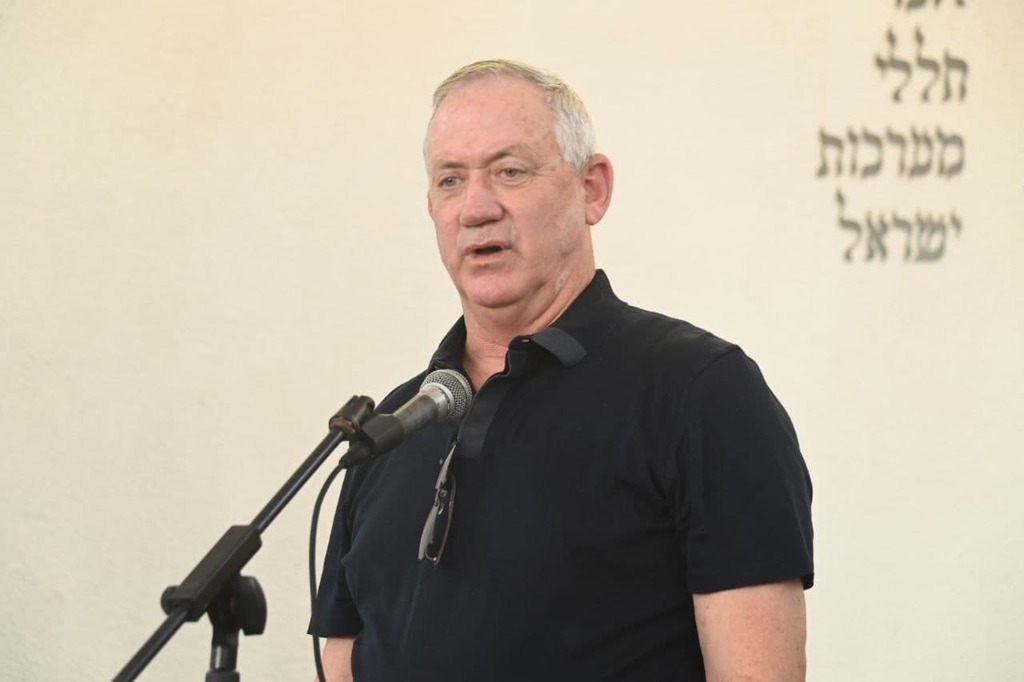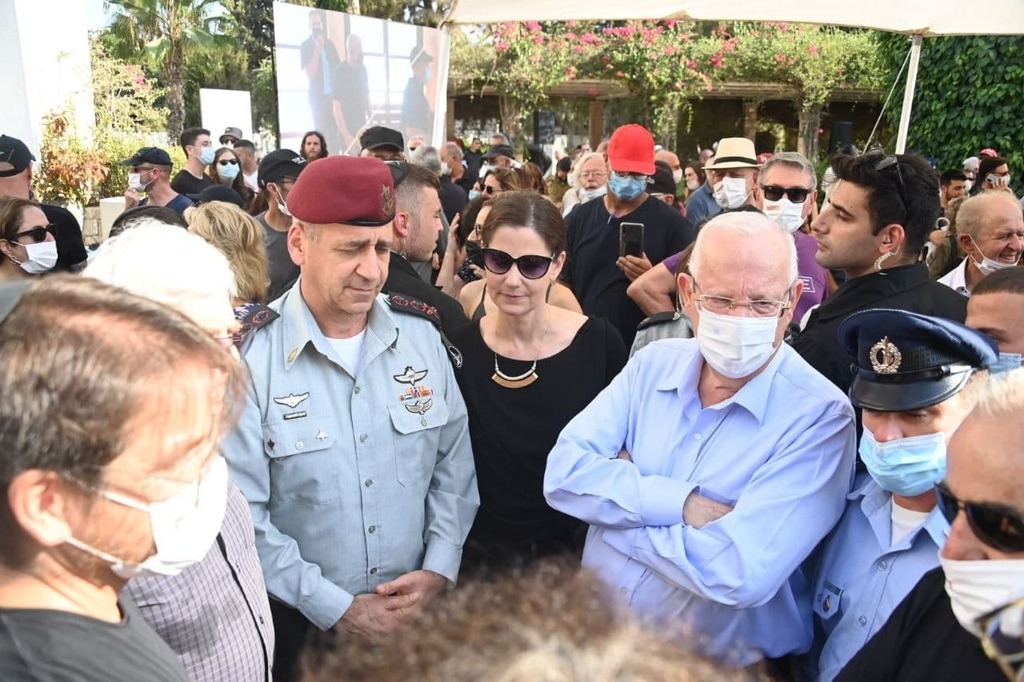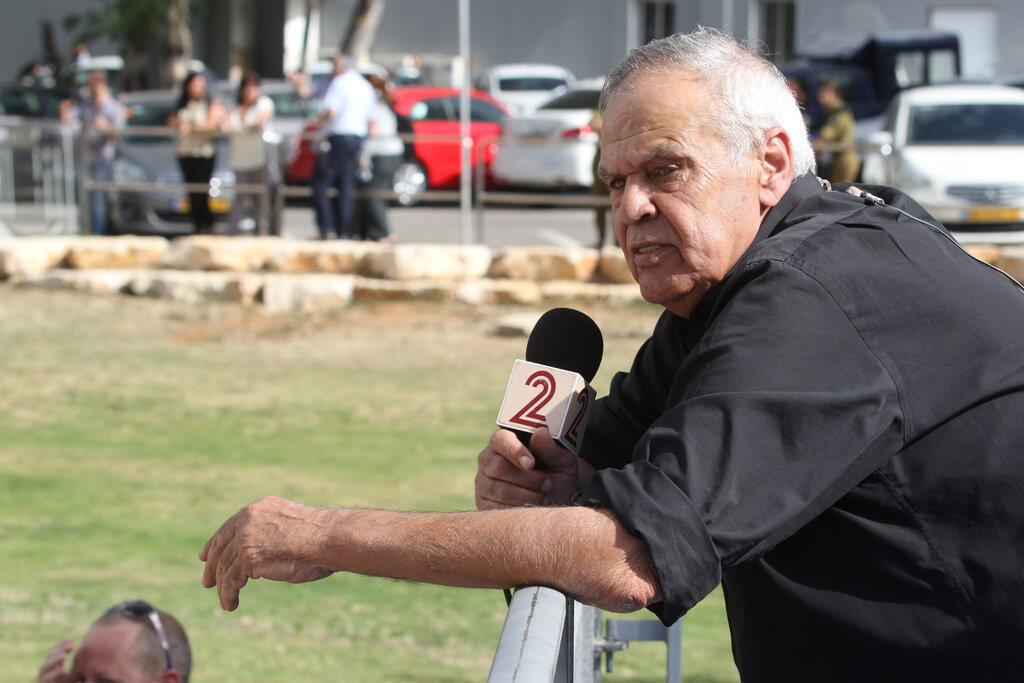Getting your Trinity Audio player ready...
Roni Daniel, one of Israel's most prominent journalists in the past three decades, was laid to rest at Kiryat Shaul Cemetery in Tel Aviv on Thursday with hundreds of mourners accompanying him on his final journey.
The renowned military correspondent was found dead at his Tel Aviv home on Monday after suffering from an apparent cardiac arrest. He was 73.
The funeral was attended by a galaxy of dignitaries including Foreign Minister Yair Lapid, Defense Minister Benny Gantz, IDF Chief of Staff Lt.-Gen. Aviv Kochavi, former president Reuven Rivlin and numerous past and present senior military officials and journalists.
Gantz, a former IDF chief of staff with nearly four decades of military experience under his belt, was among the first to eulogize the late war reporter.
"I have tried to remember the first time I met him and failed. It seemed like he was always there. We haven't gathered here just because Roni broke stories, and he did many," Gantz said. "We're here because Roni was the most Israeli journalist there is. And this has pierced through all our hearts and not only made us in the army and the political system talk to him but also listen to him.
3 View gallery


Defense Minister Benny Gantz eulogizes late war reporter Roni Daniel at Kiryat Shmuel Cemetery in Tel Aviv, July 29, 2021
(Photo: Yair Sagi)
"When he saw the values he held so dear to his heart getting trampled over, he did not care what others would say… when he hurt, he spoke out, he acted. I thank you on behalf of the citizens of Israel for journalism that cares, thank you for always being there."
Daniel worked for Channel 2's (today Channel 12) news company as a journalist and military affairs correspondent for 28 years during which he became a household name and one of Israel's top commentators.
Daniel was born in the Iraqi capital of Baghdad in October 1947 and lost his father two months later. At the age of 3, he immigrated to Israel with his mother and grew up on a kibbutz. He enlisted in the IDF in the mid-60s and served in the Nahal Brigade with which he fought in the 1967 Six-Day War against the Egyptians. He later became a company commander and fought in the War of Attrition.
3 View gallery


Hundreds in attendance at funeral of late war reporter Roni Daniel at Kiryat Shmuel Cemetery in Tel Aviv, July 29, 2021
(Photo: Yair Sagi)
During his reserve service, he was appointed as commander of the Golani Reserve Battalion and reached the rank of lieutenant colonel.
He began his journalistic career in the late 70s, working for Kol Yisrael radio first as a transportation reporter and later as a military reporter. He was promoted as head of the news division in the 1980s and also worked for Army Radio. In the early 1990s, he was one of the presenters of the "Communications File" program on Israeli Educational Television and became Channel 2 news company's military affairs correspondent in 1993, a position he filled until his death.


